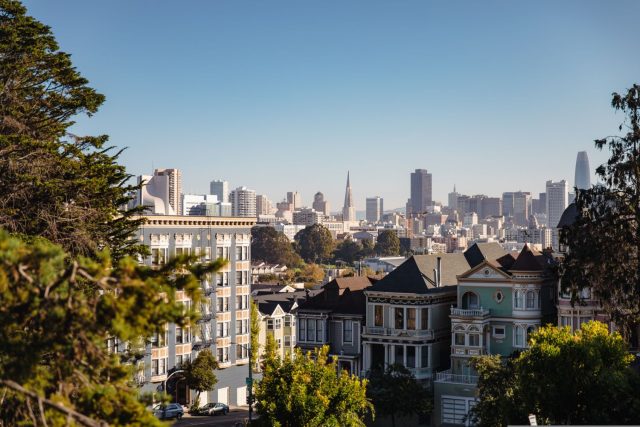My recent column mentioned that given current conditions, San Francisco’s real estate market may at any time take one step forward, and two steps back, or vice versa. It appears in recent weeks that the market has taken a nice big step forward.
“In March, the real estate market witnessed a remarkable resurgence. Buyers, who had been on the sidelines, came to the realization that they might have missed the lowest point in the market and promptly took action,” said Missy Wyant Smit, a founding agent with Compass San Francisco.
Smit went on to say that she had a huge response recently to her new listings — receiving 15 offers on the four properties she brought to the market.
The San Francisco Business Times reported roughly the same thing. According to writer Ted Andersen, the post-pandemic chill experienced by San Francisco’s residential real estate market may now be entering a period of thaw.
According to Andersen, the median home sales price for the first quarter in San Francisco was $1.639 million, up 7.5 percent over last year.
More expensive home segments are seeing the biggest year-over-year increases in sales as affluent buyers have jumped in more aggressively in 2024. This is partly because buyers at the high end of the market are more likely to have seen increases in household wealth due to stock market gains made over the past five months. They are also more likely to be able to pay all cash, and are less concerned with mortgage interest rates.
Generally speaking, most buyers appear to be accepting higher interest rates as the new normal, though less-affluent buyers in lower price segments are still the least able to do this.
Even San Francisco’s condo market is improving, according to Andersen. This includes the downtown condo market, which has been among the weakest in the nation due to economic and social issues since the pandemic hit.
The Zillow March 2024 Housing Market Report puts it all into perspective. According to Zillow, buyers in the most expensive major U.S. metros saw seasonal price appreciation ramp up faster than anywhere else.
Monthly home value growth was highest in the coastal California metros and Seattle — topping out at 3.3 percent in San Jose. After San Jose, typical home values rose fastest from February to March in San Francisco (2.7%), Seattle (2.4%), San Diego (2.1%), and Los Angeles (2%). All five comprise the most expensive markets among the 50 largest in the U.S.
It’s not a coincidence that these five metros are also where the highest number of homeowners are likely locked into their mortgage rate.
According to Zillow, shoppers in these tech-heavy markets are still experiencing bidding wars as commonplace — they all ranked among the 10 major markets with the highest share of homes sold over asking price in February. Buyers are competing over few choices — all of these metros have seen below-average recovery in inventory since the pandemic. What’s more, they were all fairly hot going into the pandemic, so inventory was already starting from a lower baseline.
Meanwhile, appreciation is subdued in southern metros where existing inventory has grown or nearly recovered since the outset of the pandemic — and has been helped along by robust injections of new construction.
Sadly, according to a recent Redfin report, rising home prices and mortgage rates are making it harder for would-be buyers to own a home throughout the country. Lack of affordability is the most commonly cited reason renters don’t believe they’ll ever own a home.
Of the one thousand renters surveyed, 38% U.S. renters don’t believe they’ll ever own a home, up from 27% less than a year ago.
For those who can afford to purchase a home in San Francisco, Smit has two important pieces of advice.
First, it might be best to avoid buying a fixer-upper because the perceived savings at purchase can be overshadowed by the lengthy and costly renovation process.
Second, the introduction of buyer broker agreements is a good thing, in part because it signifies a commitment from buyers to engage with agents for a designated period. This fosters a more structured and reliable partnership.
“Just remember, despite the allure of lower commissions with discount agents, the true value lies in the expertise of seasoned agents,” she said. “After engaging with discount agents, buyers in San Francisco often end up paying more in the long run, negating any initial savings.”
Some things to keep in mind prior to purchase.
Comments: [email protected]




